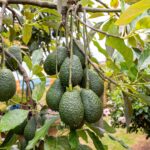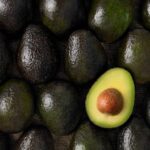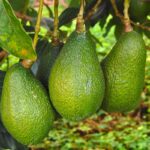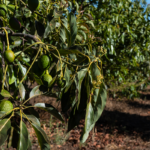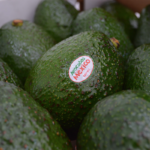The perception of U.S. and European consumers on Latin American avocados

As part of the Territorio Aguacate 2024's academic congress, held on November 27-28 in Medellin, Colombia, a panel of fruit supply chain experts discussed the perception of Latin American avocados in the most important destination markets.
Joel Pascual, general manager of Cartama Europe, Annabel Konst, purchasing director at Westfalia in Central Europe, and Fernando Bustamante, sourcing director at Walmart, shared their experiences in the industry and the keys that fruit exporters need to remember to build loyalty with American and European consumers.
The experts have worked with importers, producers, and exporters, studying the preferences of buyers and consumers to streamline the flow of information to producers to make the improvements required by customers.
The three panelists highlighted the improvement in the quality of Colombian avocados in Europe and the United States.
“Everyone realizes that Colombia is improving, and although we are still in the early stages of avocado production, the improvement has been clear over the last decade, as we have been able to secure quality fruit,” said Pascual.
This has led many importers to want to guarantee fruit from Colombia, as they can offer quality fruit when other origins stop supplying.
Westfalia's Konst also said that Colombia has become a reliable origin for keeping markets supplied during the 52 weeks of the year.
“Consumers in Europe are not focused on the origin, but on the quality and price of the fruit, but supermarkets do look at the origin because they see the difference in the fruit,” Konst said, ”Therefore, it is necessary to maintain the quality of the fruit for supermarkets to keep each origin in their portfolio.
Bustamante, Walmart's U.S. sourcing manager, indicated that the American consumer, like the European consumer, is not focused on origin but on having a good experience eating the fruit.
He said, for example, that avocado sales have not been affected when they have switched from Mexican avocados to Colombian avocados in recent years.
However, “we have received some specific complaints, identifying two problems with the Colombian avocado, especially in the early part, the taste of the fruit is plane, with low dry matter.”
He assured that the American consumer is very demanding of avocado flavor. In addition, the second problem detected in Colombian avocados arriving in the United States is in the late part of the season, when the pulp shows signs of rotting, with visible black pulp.
Main challenges for Latin American growers
To maintain a positive image of the Latin American avocado internationally, Pascual recommended that growers partner with an exporter, which can guarantee a steady flow of their fruit, with the right advice to grow their business productively.
In addition, he said that, due to the demands of the European market, an experienced exporter can ensure that they meet all market requirements.
Konst agreed with Pascual and warned that there would be new laws in Europe regarding certifications, which would make exporting more complicated, and emphasized the importance of partnering with a reliable exporter.
The challenge, said Bustamante, is to standardize the product and meet the quality expectations of the markets.
“If a producer does not have excellent preventive management, for example, against fungi, his container is going to be rejected and could mean a failure for the source market,” Bustamante said.
He also mentioned the transport distances that Latin American fruit must endure, assuring that producers located further north on the continent, such as Mexico or Colombia, have more facilities for their products to reach the stores. However, he said, good post-harvest techniques are important for this.
Sustainability and ethics
Sustainability is a very important issue for the European market. European buyers and producers closely monitor deforestation and workers' rights. Therefore, Konst said it is important for exporters to demonstrate that their fruit is produced sustainably and ethically.
“Sustainability and ethically producing a product is a demand we have in supermarkets from our customers,' said Bustamante. “Ninety percent of supermarket customers in the U.S. trust that their stores are stocking products that are taking care of the planet and the people who produce them.”
He further assured that it is an important requirement, as quality is here to stay and will only increase in the United States.
As for the most important areas regarding sustainability for consumers, taking care of water resources, the impact on the carbon footprint, deforestation, and the care of all workers in the production line stood out as the most important points among the panelists.
Demand levels by market
Bustamante argued that the American consumer is more demanding than the European, noting that avocado consumption has increased most in the US.
However, since 2000, consumers have mainly bought avocados from Mexico and California, which he said are “exquisite.”
“That's the challenge that all origins have because when you eat an avocado from any other origin if you feel the same experience as with Mexican or Californian one, you won't care about the origin,” Bustamante said. “The risk is that consumers will have a bad eating experience, and then they will probably be interested in the origin, something that every industry has to take care of.”
He also referred to the importance of maturation techniques, which ensure that the consumer repeats the sale.
Pascual said that if a consumer buys an avocado and, because of the ripening process, has to throw it away when he wants to eat it, he will probably not buy it again for several weeks due to the high cost of avocados. Therefore, producers must ensure their product is well-ripened when it reaches the consumer's hands.
Above all, the three panelists emphasized the importance of fruit quality, the distinguishing mark of each origin, and the exporting company at the destination.

















